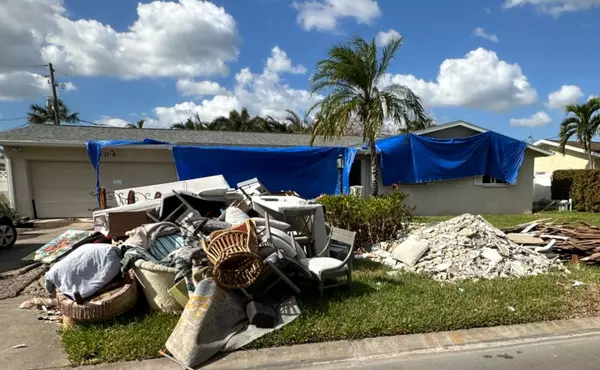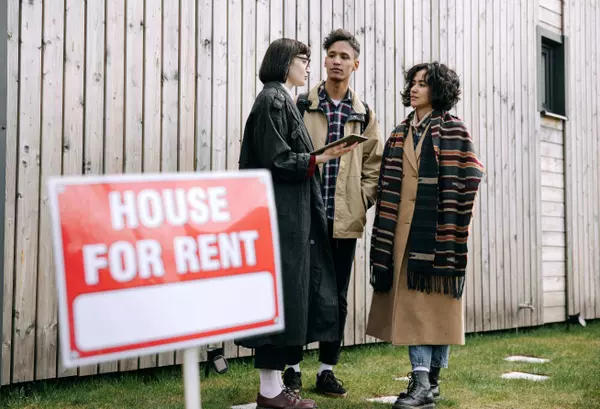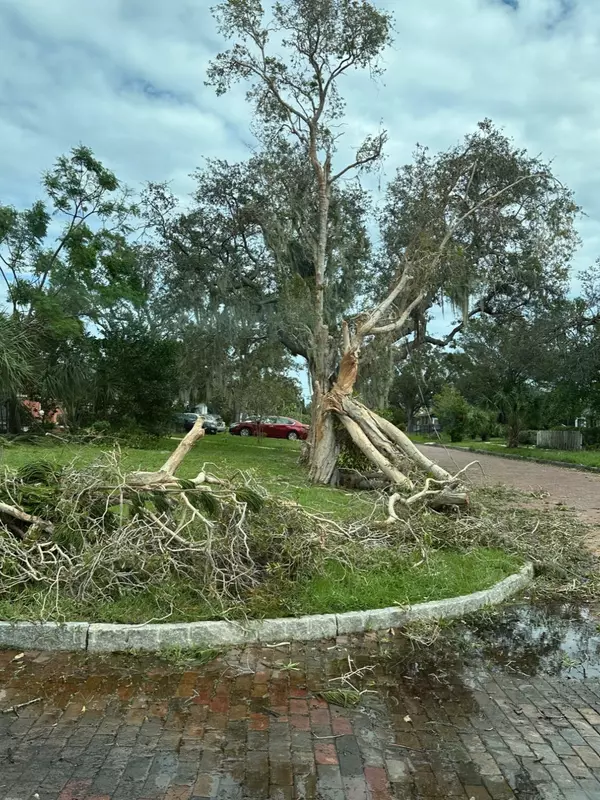Navigating the world of Permitting
Navigating the Permitting Process in Pinellas County: My Personal Journey
If you’re planning any type of property improvement in Pinellas County, whether it’s installing a new fence, adding a room, or even embarking on a full-scale renovation, knowing the permitting process is key. As a local resident and real estate professional, I recently went through the permitting process for a project of my own. I’ve learned firsthand that understanding where you live—whether in an incorporated city or an unincorporated area—is the first step in ensuring your project runs smoothly.
Why Knowing Your Location Matters
Pinellas County is a unique mix of incorporated and unincorporated areas. If you live in an unincorporated area, the Pinellas County Board of County Commissioners serves as your local government. They provide permitting services directly to these areas, alongside other vital community services. Conversely, if your property is within city limits (incorporated), your city handles most permitting needs. You can determine your property’s status easily by using the Pinellas County My Neighborhood Lookup Tool.
I live in an unincorporated area, which meant my permitting process was handled directly by the County. This distinction is critical because it determines not only where you apply for permits but also the specific regulations and codes that apply to your project.
Step 1: Start with Research
Before breaking ground, I started by researching the requirements for my project. The County’s online resources, like their Permitting Guide, were invaluable. I discovered that even smaller projects, like repairing a driveway or adding a shed, often require permits in unincorporated Pinellas. This ensures the work meets safety standards and aligns with local zoning codes.
Step 2: Application Process
The application process can feel daunting at first, but the County makes it manageable. For my project, I needed to submit:
A completed application: Found online or in person at the County’s permitting office.
Site plans and drawings: Showing exactly what I planned to build or modify.
Proof of property ownership and contractor details: To ensure compliance with local regulations.
If you’re hiring contractors, it’s important to verify they’re licensed and familiar with Pinellas County codes. Hiring locally experienced professionals can save time and avoid unnecessary delays.
Step 3: Inspections and Approvals
After my permit was approved, I had to schedule inspections at various stages of the project. These inspections ensure that all work meets safety and building codes. While the process added a few extra days to my timeline, it gave me peace of mind knowing my project was done right.
Tips for Navigating the Process
Use online tools: Resources like the My Neighborhood Lookup Tool can clarify whether you need to work with the County or a city government.
Plan for extra time: Permitting and inspections often take longer than expected, so build this into your project timeline.
Ask questions: County staff were incredibly helpful when I ran into uncertainties about my application. Don’t hesitate to reach out!
Why Permitting Protects Your Investment
Skipping permits might seem tempting, but it can lead to costly fines, difficulty selling your home, or even forced removal of unpermitted work. As a real estate professional, I always advise clients to ensure proper permits are in place for any modifications to their property. It’s an investment in your property’s safety, value, and longevity.
Final Thoughts
Living in Pinellas County, whether in an incorporated city or unincorporated area, means enjoying a vibrant and diverse community. Understanding the permitting process is part of being a responsible property owner and neighbor. If you’re unsure where to start, check out the Pinellas County website or use their My Neighborhood Lookup Tool to find out who oversees permitting for your area.
Remember, the permitting process isn’t just about compliance—it’s about ensuring your project enhances the community we all call home.
Feel free to reach out if you have questions or need recommendations for navigating the process—I’m here to help!
A Beginner’s Guide to Short-Term Rentals in Saint Petersburg
If you're thinking of dipping your toes into the world of short-term rentals, Saint Petersburg, located in Pinellas County, Florida, is an attractive spot. With its stunning beaches, vibrant art scene, and year-round sunshine, it’s no surprise that tourists flock here, making it a prime location for property investments. But before you list your property on Airbnb or VRBO, there are a few important things to know to ensure your short-term rental is both profitable and compliant with local regulations.
What Are Short-Term Rentals?
A short-term rental typically refers to renting out your property or part of it (like a vacation home, condo, or even a spare room) to guests for periods shorter than 30 days. This is a popular option in tourist-heavy areas like Saint Petersburg, where visitors often seek the comforts of a home rather than traditional hotels.
Pinellas County’s Short-Term Rental Regulations
While the idea of turning your property into a rental sounds easy, Pinellas County, including Saint Petersburg, has specific rules to regulate short-term rentals. This will determine whether you AirBnB your home, or find long-term rentals for a minimum of one year leases. Here’s what you need to know:
Zoning RegulationsNot every property in Saint Petersburg is eligible to be used as a short-term rental. The city’s zoning regulations determine where short-term rentals are allowed, typically based on the type of property and the area. Some residential neighborhoods prohibit or limit short-term rentals.
Action: Check the zoning for your property. You can contact the City of Saint Petersburg Zoning Department at (727) 893-7471 or visit their Zoning Division website to confirm if your property is in a zone that allows short-term rentals.
Registration and Licensing RequirementsIn most cases, you’ll need to register your property with the city and state before renting it out. This includes obtaining a Business Tax Receipt from Pinellas County and registering for a Florida Department of Revenue (DOR) Sales Tax number, since short-term rentals are subject to state sales tax.
Action: You can apply for your Business Tax Receipt through the Pinellas County Tax Collector’s Office. For state tax registration, visit the Pinellas DOR website or call them at (850) 488-6800.
Health and Safety RegulationsYour rental must meet certain safety standards. This could include having working smoke detectors, fire extinguishers, and clearly marked exits in case of emergencies. Properties may also be subject to inspections, so it's important to ensure your home is up to code.
Action: Before renting, schedule an inspection or reach out to local authorities to make sure your property complies with safety regulations. The City of Saint Petersburg Fire Department can provide guidance on fire safety requirements.
Occupancy LimitsPinellas County enforces specific occupancy limits for short-term rentals. This is generally tied to the number of bedrooms in the property and is meant to avoid overcrowding.
Action: Be sure to check with the city or county for specific limits on how many guests can stay in your property at once. You can verify these guidelines with the Pinellas County Building Services at (727) 464-3888.
Noise and Nuisance OrdinancesWhile having tourists in town can boost your income, it’s important to be mindful of your neighbors. Pinellas County has strict noise ordinances, especially in residential areas. Make sure to clearly outline house rules for your guests regarding noise levels, parking, and trash disposal.
Action: Post clear guidelines inside your rental and consider installing noise monitoring devices (that don’t record conversations) to prevent complaints.
The Financial Side: What You Need to Know
Owning a short-term rental isn’t just about listing it on platforms like Airbnb. There are several financial factors to consider:
Taxes: In addition to state sales tax, short-term rental owners must collect Tourist Development Tax (also known as the "bed tax") from their guests. This is a 6% tax imposed by Pinellas County on all short-term stays.
Action: You’ll need to remit this tax regularly to the Pinellas County Tax Collector. You can set up your account at Pinellas County Tax Collector.
Insurance: Your standard homeowner’s insurance may not cover damages or liability related to short-term guests. It’s important to look into short-term rental insurance policies that protect your investment.
Action: Contact your insurance provider and ask about adding coverage for short-term rental activity or explore specialized vacation rental insurance policies.
Property Management: Managing a rental can be a lot of work. You’ll need to clean between stays, communicate with guests, and address maintenance issues quickly. If you live far away or prefer a hands-off approach, hiring a property management company can help.
Action: Look for local property management companies that specialize in short-term rentals. They typically charge a percentage of your rental income but can take the stress out of day-to-day operations.
Who to Contact for More Information
If you're new to short-term rentals and want to make sure you’re covering all your bases, here are the key contacts and resources you’ll need:
Pinellas County Government Website: The official site provides information on zoning, permits, and regulations related to short-term rentals. Visit Pinellas County Planning Department for more details.
Local City Websites: Each city within Pinellas County (e.g., St. Petersburg, Clearwater, Dunedin) may have its own regulations regarding short-term rentals. Check the specific city’s website for local ordinances.
County Appraiser
County Tax Collector
Short Term rental city contacts and regulations
Pinellas County Clerk of the Circuit Court: Pinellas County Clerk – Access legal documents and information on landlord-tenant laws.
Florida Department of Business and Professional Regulation: DBPR – Find licensing information and regulations for landlords.
St. Petersburg Housing Authority: SPHA – Resources for affordable housing and rental assistance programs.
Local Real Estate Agent
Post-Flood Recovery Guidance
Post-Flood Recovery Guidance
Navigating the Aftermath of a Flood
Hi everyone,
If you’ve recently experienced flooding, I understand how overwhelming it can be. Here are some steps to help you manage the recovery process:
🌀 After Flooding: Recovery Steps 🌀
Stay Calm: It’s natural to feel panicked. Focus on staying calm and prioritize your safety and that of your loved ones.
Assess the Situation: Once the immediate danger has passed, turn on lights or candles to navigate your home safely. Gather your family and pets in a dry area.
Begin Cleanup: Start by moving anything you didn’t elevate from the ground to higher surfaces.
Cutting Drywall: If you experienced significant flooding, consider cutting the walls from the floor up to the appropriate height to prevent mold.
Organize Debris: Keep your debris organized by placing trash in contractor bags for easier pickup.
Keep Records: Maintain a notebook with details of everyone who contacts you for assistance, including insurance and aid organizations.
Don't Keep Flooded Cars: Take the insurance payout for any flooded vehicles to avoid future issues.
Remove Clothing Quickly: Get clothes out of the house as soon as possible to prevent mold growth.
Label Hardware: If you’re removing cabinetry, save and label hardware in bags for easy reassembly.
Document Receipts: Use a pro ID account at Home Depot to keep track of all receipts, as you’ll need them later for reimbursement.
Apply for Assistance: Make sure to apply for all available aid, including FEMA and Red Cross support.
Finally, take a moment to breathe. Remember that if you have your family and a roof over your head, you’re already ahead of many others facing similar challenges. This is a tough time, but you will get through it.
Take care,Christine WalkerRealtorchristinewalker@gmail.com

Christine Walker
Phone:+1(727) 472-5674



